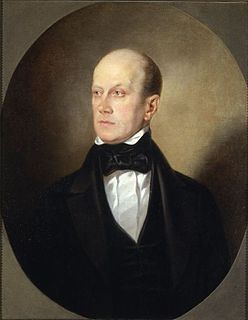A Quote by Karl Jaspers
When in our isolation we see our lives seeping away as a mere succession of moments, tossed meaninglessly about by accidents and overwhelming events; when we contemplate a history that seems to be at an end, leaving only chaos behind it, then we are impelled to raise ourselves above history.
Related Quotes
There are moments in our lives, there are moments in a day, when we seem to see beyond the usual- become clairvoyant. We reach then into reality. Such are the moments of our greatest happiness. Such are the moments of our greatest wisdom. It is in the nature of all people to have these experiences; but in our time and under the conditions of our lives, it is only a rare few who are able to continue in the experience and find expression for it.
Among the older records, we find chapter after chapter of which we can read the characters, and make out their meaning: and as we approach the period of man's creation, our book becomes more clear, and nature seems to speak to us in language so like our own, that we easily comprehend it. But just as we begin to enter on the history of physical changes going on before our eyes, and in which we ourselves bear a part, our chronicle seems to fail us-a leaf has been torn out from nature's record, and the succession of events is almost hidden from our eyes.
Lists help us manage the chaos of our lives—to impose order, if only for a moment. Writing a list clears the mind. … Once everything is written down, it’s easier to see which tasks are important and in what order to tackle them. Tasks that seem overwhelming look easier when reduced to mere lines on paper.
I want my work to become part of our visual history, to enter our collective memory and our collective conscience. I hope it will serve to remind us that history's deepest tragedies concern not the great protagonists who set events in motion but the countless ordinary people who are caught up in those events and torn apart by their remorseless fury. I have been a witness, and these pictures are my testimony. The events I have recorded should not be forgotten and must not be repeated.
So that's how we live our lives. No matter how deep and fatal the loss, no matter how important the thing that's stolen from us--that's snatched right out of our hands--even if we are left completely changed, with only the outer layer of skin from before, we continue to play out our lives this way, in silence. We draw ever nearer to the end of our allotted span of time, bidding it farewell as it trails off behind. Repeating, often adroitly, the endless deeds of the everyday. Leaving behind a feeling of immeasurable emptiness.






































